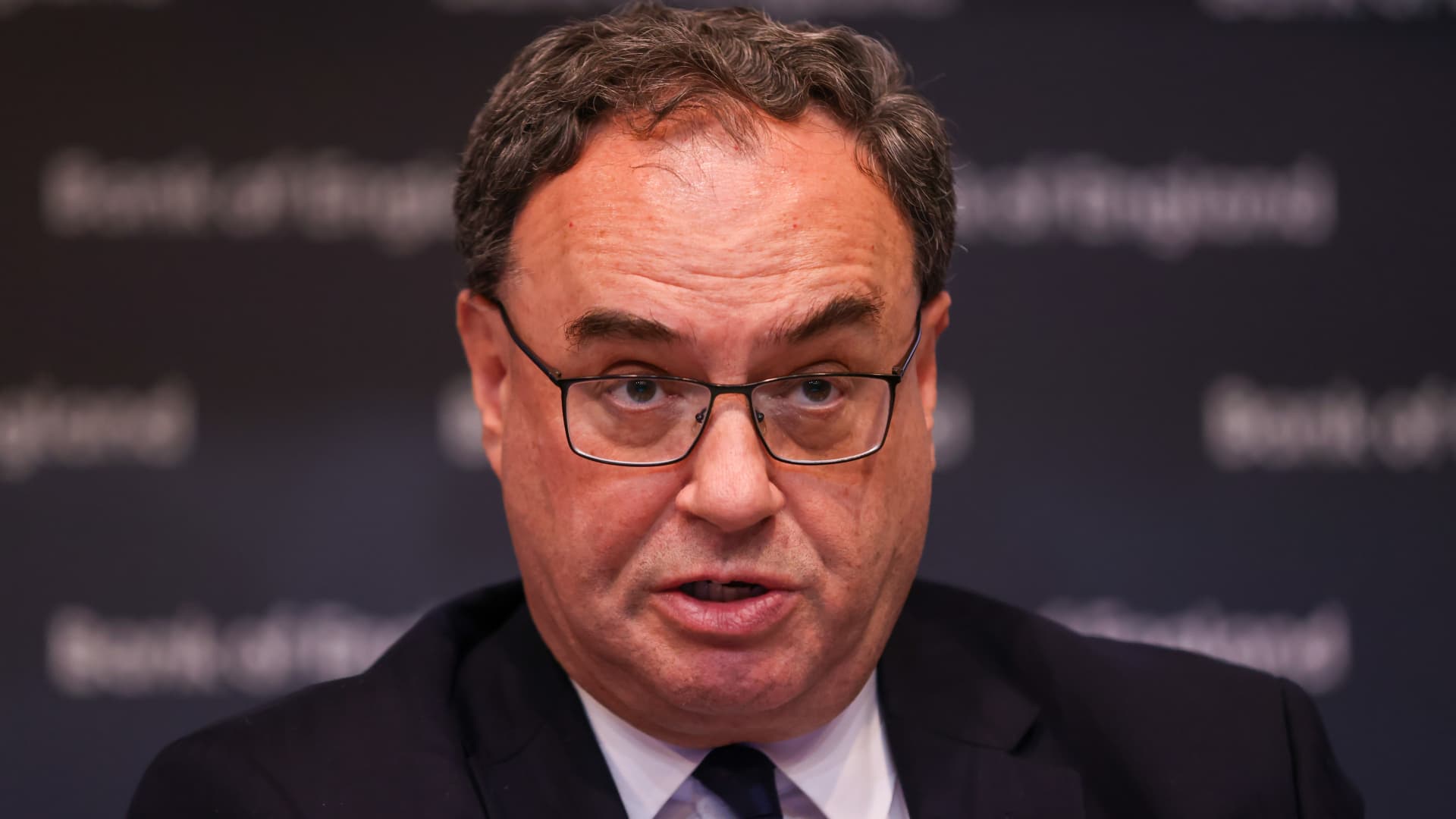LONDON — Bank of England Governor Andrew Bailey on Thursday defended an about-turn in the bank’s U.K. growth forecast, saying its “biggest upgrade” ever reflected the rapidly shifting economic landscape.
At its policy meeting earlier Thursday, the central bank said it no longer expects the U.K. to enter into recession this year.
Months earlier, it had predicted the county would face its longest-ever recession, which it then said would likely be shallower that initially thought.
The bank said Thursday that U.K. GDP was expected to be flat over the first half of this year, growing 0.9% by the middle of 2024 and 0.7% by mid-2025. At its prior meeting in February, it said U.K. GDP was projected to decline by around 0.75% over the second half of 2022.
“It may be the biggest upgrade we’ve ever done,” Bailey told CNBC’s Joumanna Bercetche.
Still, he insisted that the overall forecast remained weak.
“The level is still quite low though, let’s be honest,” he added.
The bank has been criticized for failing to provide accurate growth forecasts, which could stymy its efforts to combat still high inflation.
However, Bailey said the forecasts were based on conditional data, which is subject to frequent and significant fluctuations.
“They are conditional on financial market prices, they’re conditional on commodity prices, they’re conditional on government policies. So, as those conditions change, we change our forecasts,” he said.
“We have deal with all these things, which is why our forecasts do change and do evolve,” he said.
The governor also acknowledged that the bank should do a better job at communicating. It follows an earlier faux pas by the BOE’s Chief Economist Huw Pill who said Britons should accept that they are now worse off due to stubbornly high inflation.
“It’s not the right choice of words,” Bailey said of Pill’s comments.
“How people form their expectations about future inflation is so important for us. The wording is critically important, because I want to emphasize, we are very sensitive to the impact this has on people in this country,” he continued.
However, he added that he was optimistic of a “rapid” fall in inflation over the coming months.
Earlier Thursday, the U.K. central bank maintained its commitment to tackling price rises, raising interest rates by 25 basis points and taking the main bank rate to 4.5%.
The headline consumer price index rose by an annual 10.1% in March, driven by persistently high food and energy bills. Core inflation, which excludes volatile food, energy, alcohol and tobacco prices, increased by 5.7% over the 12 months to March, unchanged from February.
— CNBC’s Elliot Smith contributed to this report.
